As parents, caregivers, and educators, we often focus on structured activities and educational tools to help young children learn and grow. However, there is one powerful, yet sometimes overlooked, aspect of childhood development: imaginative play. From pretending to be superheroes to building elaborate worlds with blocks, imaginative play offers invaluable opportunities for children to develop a wide range of skills that form the foundation for their cognitive, emotional, and social growth. But why is imaginative play so important?
1. Fostering Creativity and Problem-Solving Skills
Imaginative play encourages children to think outside the box. When children engage in pretend play, they create scenarios, characters, and stories that require them to problem-solve, adapt, and find creative solutions. For example, a child pretending to be a doctor might have to figure out how to “treat” a stuffed animal using toy tools, or a child building a castle out of cardboard might encounter challenges with its structure. These moments, though simple, help children develop critical thinking skills that will benefit them in every area of life, from school to personal challenges.
2. Supporting Emotional Development
Imaginative play allows children to explore a wide range of emotions in a safe and controlled environment. By taking on different roles—whether as a parent, teacher, or even an animal—children can process their feelings, express desires, and experiment with scenarios that might otherwise be difficult to navigate in real life. For instance, a child pretending to be a parent may mirror their own experiences at home, learning empathy, understanding responsibility, and gaining a deeper connection to others’ emotions. This kind of role-play helps children develop emotional intelligence, an essential skill for managing their feelings and relating to others throughout their lives.
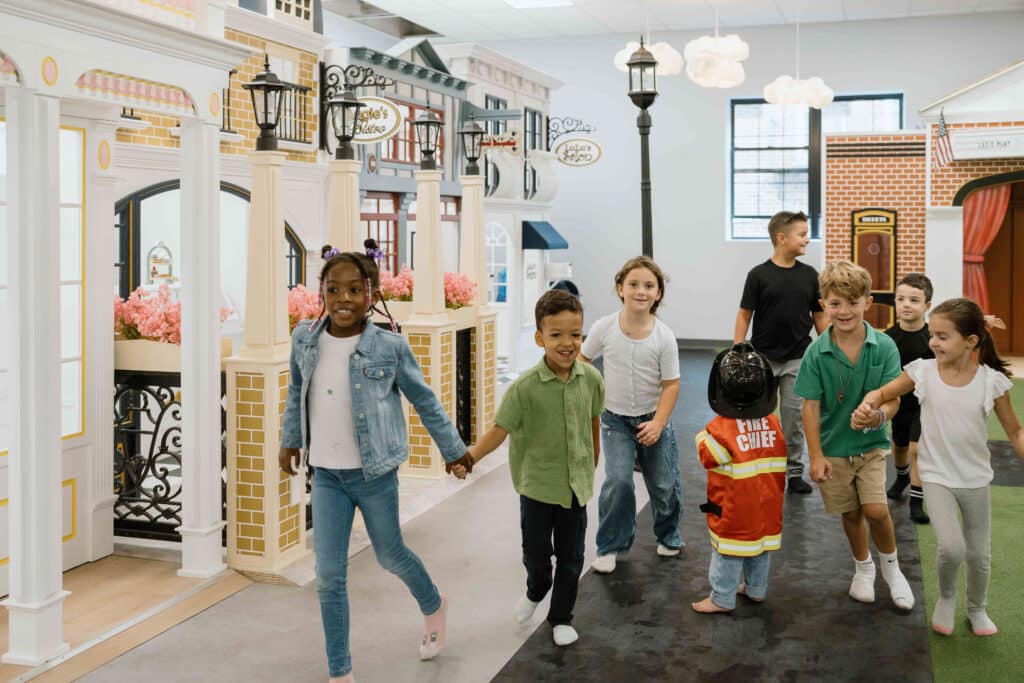
3. Enhancing Language Skills
One of the most powerful benefits of imaginative play is its effect on language development. When children engage in pretend play, they use language to narrate their stories, communicate with others, and negotiate roles. Whether they’re asking a toy animal to “sit down” or telling a story about their adventures, children practice vocabulary, sentence structures, and storytelling skills. This rich language environment helps build their communication abilities, which are crucial for literacy and academic success. The more children are encouraged to speak, listen, and negotiate during play, the stronger their language skills will become.
4. Building Social Skills
Imaginative play often involves social interaction with peers or adults. Through pretend play, children learn how to cooperate, share, take turns, and resolve conflicts—key elements of social interaction. Playing as a team requires children to understand social roles, respect boundaries, and develop a sense of empathy for others. Whether they’re playing house, having a tea party, or working together to build a fort, they’re learning important lessons in cooperation and collaboration. In group settings, they also learn how to adapt their behavior based on the preferences and ideas of others, building a deeper understanding of the dynamics that shape friendships.
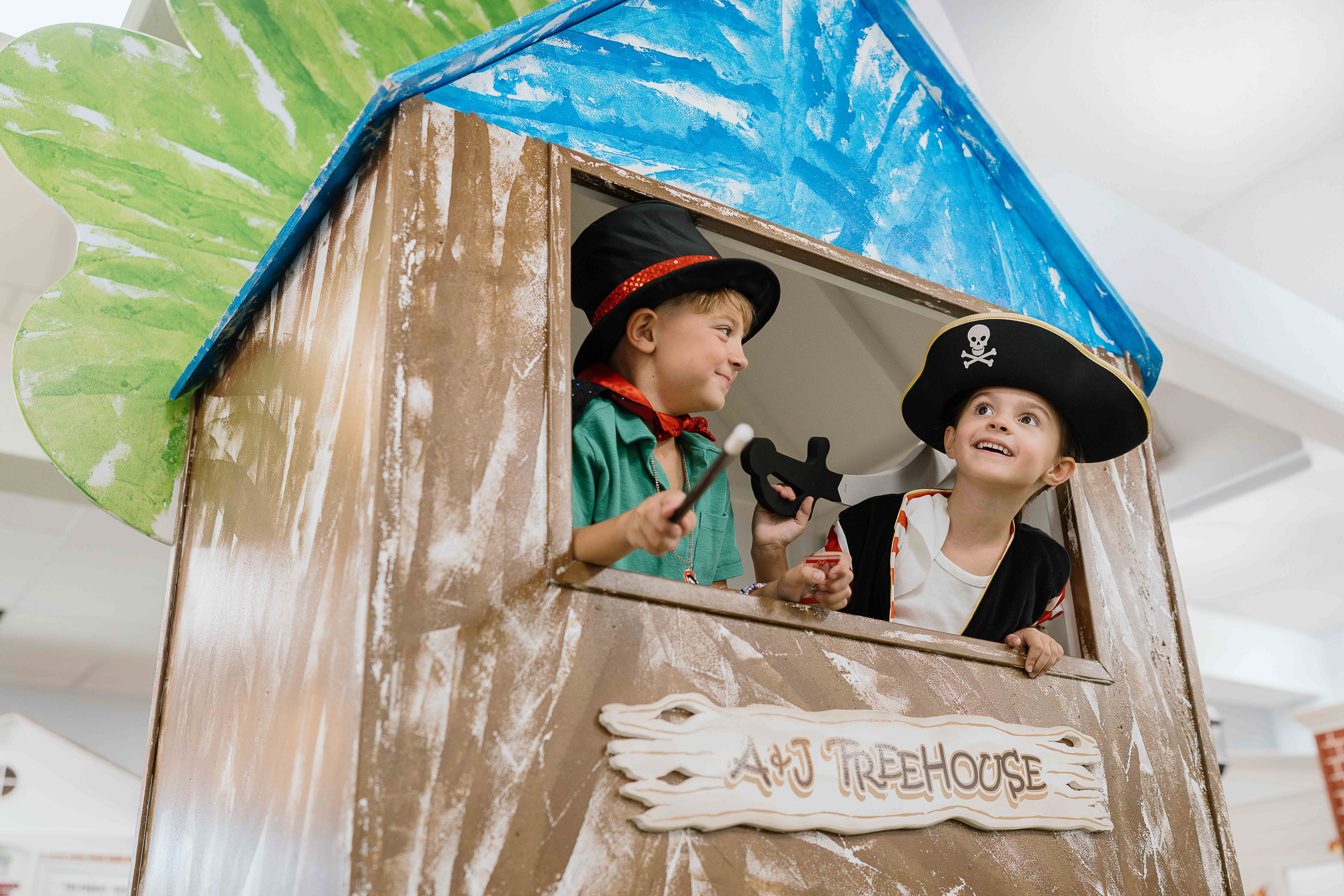
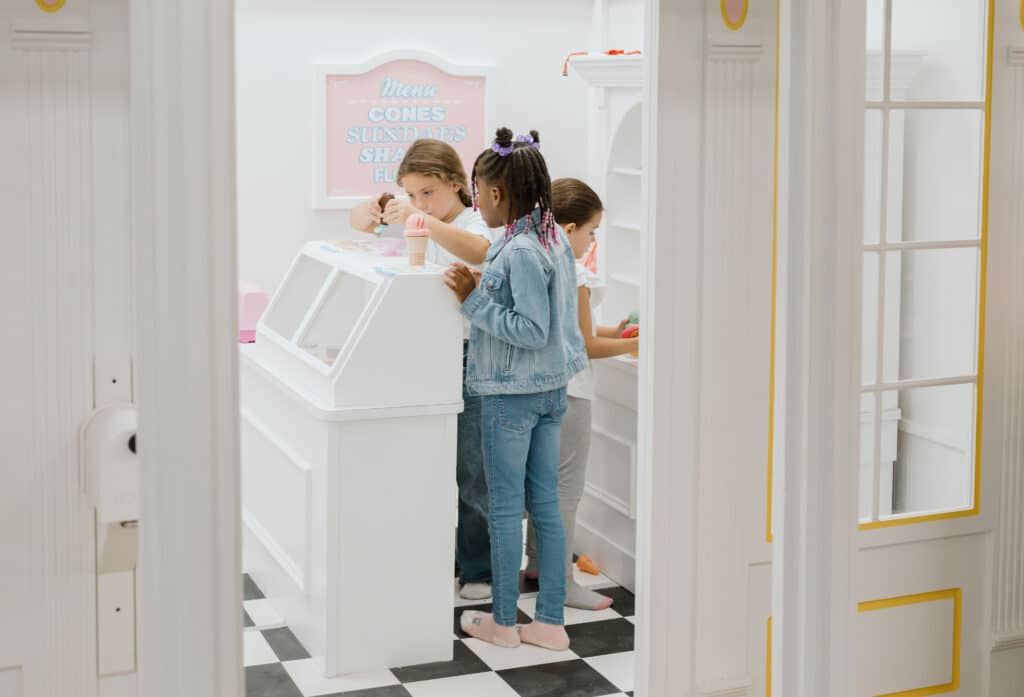
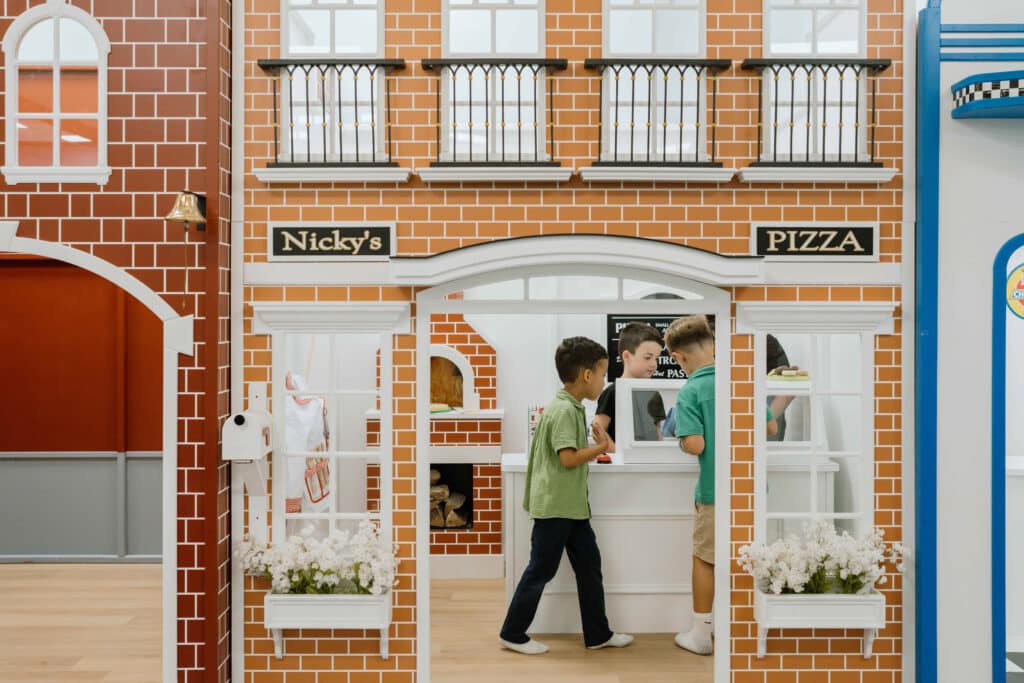
5. Boosting Cognitive Development
Imaginative play plays a critical role in a child’s cognitive development by stimulating their memory, attention, and focus. Many pretend games require children to recall and apply what they’ve learned. For instance, a child pretending to shop at a grocery store might recall the names of items, categorize them, and even calculate costs or prices. These activities engage their memory and help strengthen the brain’s capacity for organization and logical thinking. Imaginative play also fosters abstract thinking—children are not merely reacting to what they see; they are imagining things beyond the present moment, which leads to the development of higher-level cognitive functions.
6. Encouraging Independence and Confidence
When children create their own games and decide how the world they’ve invented will work, they practice decision-making and self-direction. The freedom to explore different scenarios and take on various roles boosts their confidence. As they navigate and shape their imaginative world, they realize their own ability to problem-solve, lead, and express their ideas. This growing sense of autonomy fosters a positive self-image and encourages independence. The more children are given the space to explore through imaginative play, the more they will develop a sense of self and the confidence to navigate real-life situations.
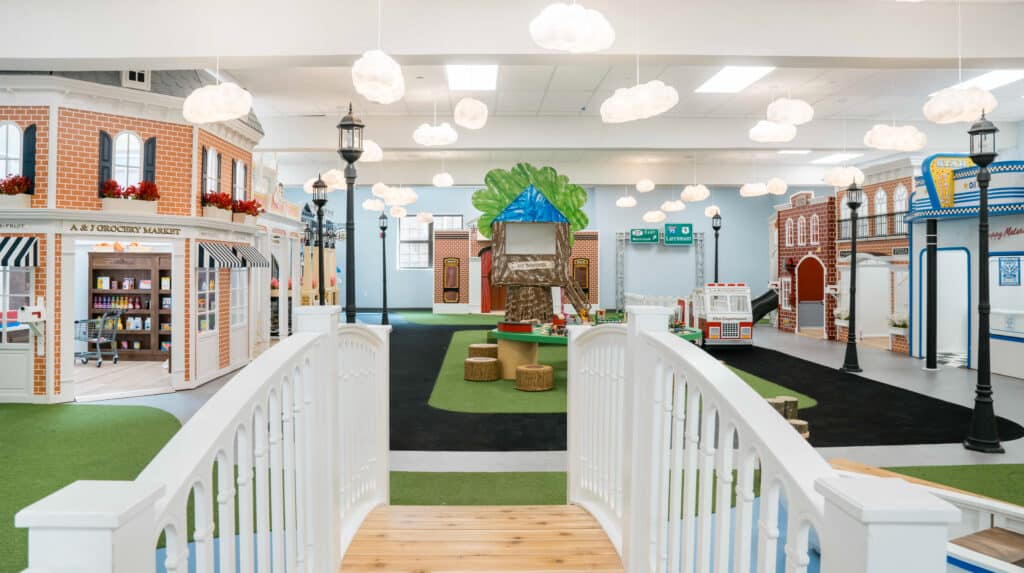
7. Promoting Physical Development
Imaginative play isn’t just about the mind—it also involves the body. Many imaginative activities require children to move, whether they’re pretending to fly like a bird, acting like animals, or running around in an obstacle course. These physical activities improve motor skills, coordination, and balance. Pretend play that incorporates movement also helps children build strength and stamina, laying the foundation for a healthy lifestyle and a love of physical activity.
Imaginative play is much more than just “play.” It’s a fundamental component of childhood development that nurtures creativity, language, problem-solving, emotional intelligence, and social skills. By providing children with the time, space, and freedom to engage in imaginative play, we give them the tools they need to thrive academically, socially, and emotionally. Encouraging imaginative play isn’t simply a way to entertain kids—it’s an investment in their future, helping them grow into confident, capable, and compassionate individuals. So, the next time you see your child lost in a world of make-believe, know that they’re doing important work—laying the building blocks for the person they’re becoming.
Photos featured in this blog are from our work with Anna & Jack’s Treehouse of Larchmont – if you would like to explore their website, you can find it here!
